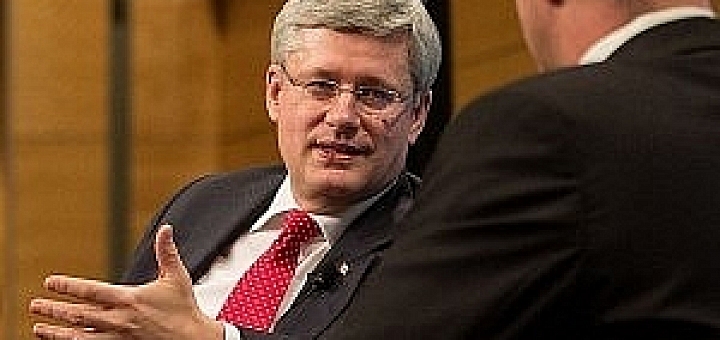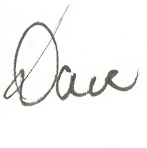LIKE THE TV COMMERCIAL USED TO SAY, “CAN YOU TELL THE DIFFERENCE?”
There’s a scene in the movie, “True Lies” where the terrorists have captured and tied up Arnold Schwarzenegger and Jamie Lee Curtis, injected Arnie with truth serum of some sort, and left the room to give the drug time to take effect. Jamie Lee has just discovered that the husband she thought was a dull-as-dishwater computer salesman is in fact a secret agent, and conveniently, this gives her the opportunity to quiz Arnie about this rather significant deception he’s been foisting upon her their entire married life.
At one point she demands, “Have you ever killed anyone?” And he answers, groggily, “Yeah, but they were all bad.”
In Hollywood action movies, the Ends justify the Means all the time. Because Hollywood Movies Aren’t Real.
If Hollywood Movies Were Real, we city dwellers would all be dodging one another’s bullets as we merrily shoot magpies in our back yards.
We don’t live like people in Hollywood movies because if we did, society would descend into bedlam. We live by the Constitution and the Charter of Rights, the Rule of Law and respect for the Principles of Justice. In so doing, we have quite literally created a Civil Society — one in which Canadians are civil to one another. We’re hardly perfect. But most of us signal before turning, open doors for one another, apologize when we get bumped into, let the person with just a couple of grocery items go ahead of us in the supermarket checkout line, pay our bills on time, do not step on others while clawing our way to the top, keep our word, hold our tempers, and treat others with respect in our dealings with them. Because of this, we can go about our lives trusting that most of the time, nobody’s going to screw us over.
Clinton-Gore campaign strategist Paul Begala is generally credited with being the first (of many) to say, “Politics is show business for ugly people.” Although Begala himself says, “I can’t honestly lay claim or credit. I might’ve heard it in a bar. I’m a speechwriter — I just collect these things.” In an interview with the Washington Post five years ago, Begala went on to say, “I first started using that phrase in Texas in the 80s. It’s caught on for obvious reasons — a pithiness that so accurately describes what we’ve all sensed about the two industries. There’s a needy quality that actors and politicians have, but there’s also an element of caprice…both take a lot of talent and drive and discipline, but there’s also an element of lightning striking.”
And there’s more than a grain of truth to the saying. You have to have an outsized ego. You must absolutely believe, in the face of any and all evidence to the contrary, that you have something so unique to offer the world that you willingly put up with the crap you have to go to in order to “make it” — in either show business or politics. Success in either show business or politics grants you a profile, a degree of fame, an opportunity to be influential, and access — to people and social events you would otherwise never get near. For a lot of people attracted to either industry, that’s as intoxicating as sex to a teenage boy. And I’ve told this story before: of the hundreds of books on politics that have crossed my desk, the one that got the petty, mundane, people-behaving-badly details of politics closest to the truth was written not by an academic, a pundit, or even an actual politician, recovering or otherwise. It was written by a Hollywood scriptwriter. One of the best Hollywood scriptwriters there ever was, by the way…and it was a work of non-fiction, part textbook on how to write a screenplay, part so-you-think-you-wanna-try-and-make-it-in-Hollywood slice of show business life, part memoir. The author was William Goldman — the guy who wrote “Butch Cassidy and the Sundance Kid”, “Marathon Man”, “A Bridge Too Far”, “All the President’s Men”, and “The Princess Bride”, among others. The title of his Inside Hollywood (which just happens to also be Inside Politics) tome —
Which Lie Did I Tell?
For all the similarities, however, there is one fundamental difference: Hollywood is a Dream Factory. Politics, for all its unreal qualities, is ultimately entirely about the Real World — about making good and just laws, serving the public interest, and doing your best for the people you represent.
Bill Goldman wrote a surprising number of screenplays based on historical events (and even there, he had to take dramatic license in order to make the stories work on the big screen). But he also wrote works of pure fiction — stories he made up in his head or adapted from a novel the author made up — for the purpose of entertaining the audience. That, after all, is the screenwriter’s job.
Politicians, on the other hand, ought not to make s**t up.
Which brings us to the Mike Duffy coverup, which oddly enough is beginning to resemble a movie we’ve seen before: a remake of “All the President’s Men”, with some dramatic license taken. This time it’s set in a different location, and the main characters have different names, but damned if it isn’t the same basic plot. Some not very important characters commit what on its face is a minor offence — you don’t usually get much jail time for the crime of burglary and it remains to be seen if a crime was even committed when the portly senator-in-exile first filed his questionable expense claims and then accepted a $90,000 cheque from Nigel Wright to pay the Senate back — and then the important characters concoct this elaborate cover-up scheme in hopes none of this blows back on them, which of course it does in spades as the cover-up eventually comes apart at the seams.
All because, in both Watergate and Duffycake, the guy at the very top fostered a culture among his minions in which almost anything was permissible in the service of the goal: keeping the guy at the very top in power.
We know from history that Richard Nixon believed that End justified the Means. We can discern from his behaviour in office that Stephen Harper believes it and condones it, too.







Leave a Reply